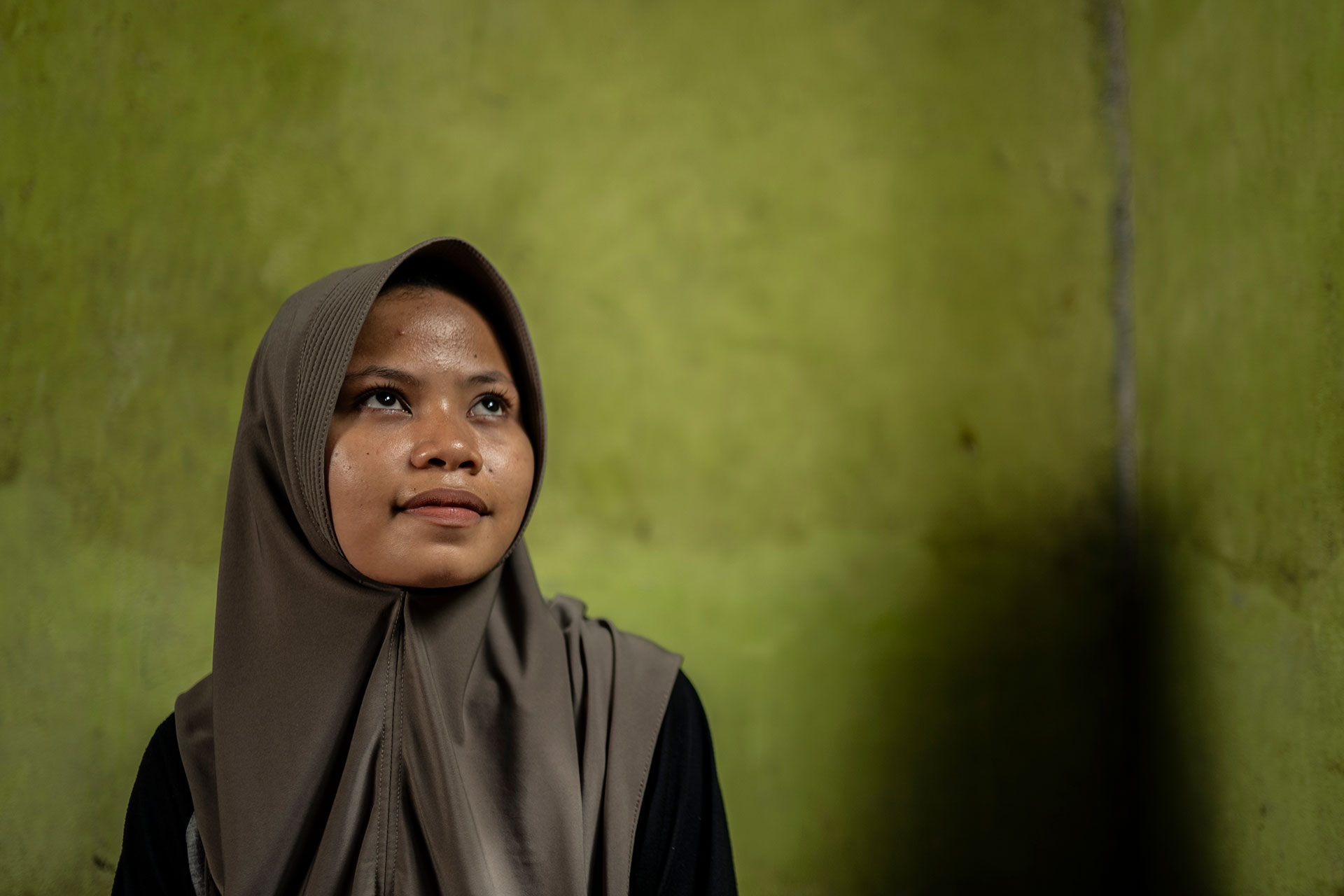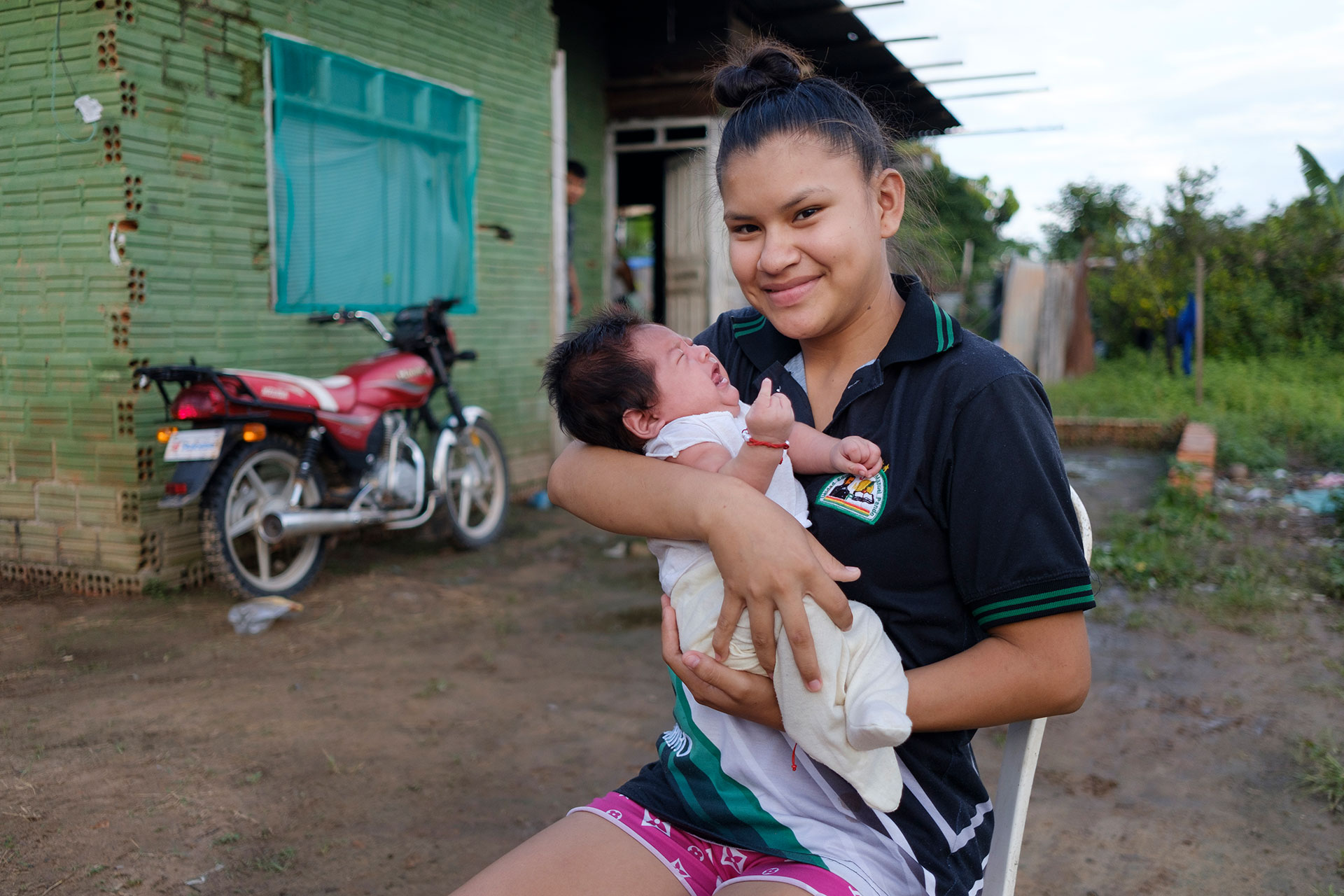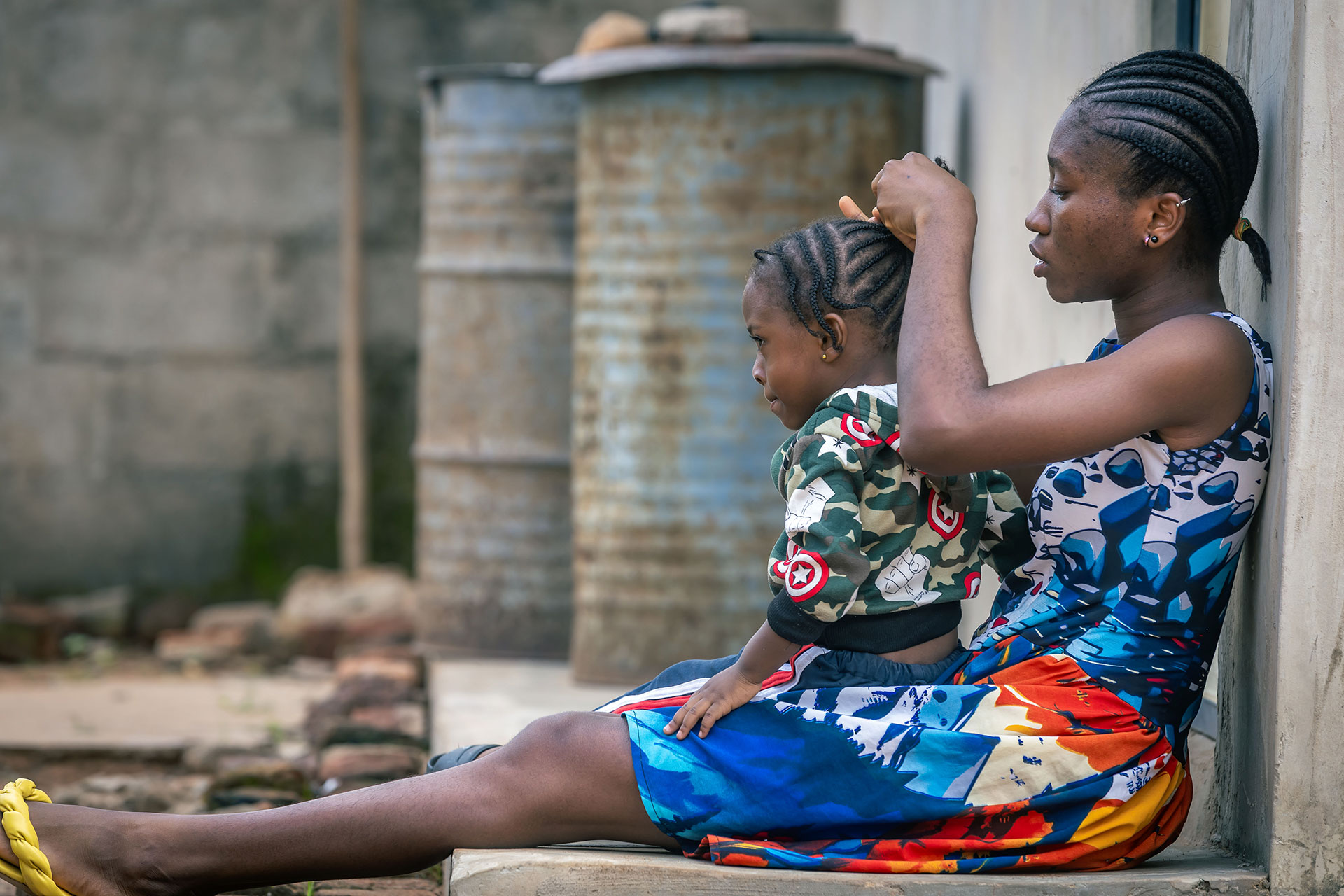‘I didn’t lose my intelligence to motherhood’
Photography by Kondwani Jere for Ipas
Chinsinsi Banda discovered she was pregnant immediately after taking her final primary school exams. She was shocked, as she says she had sex only once during the school holidays.
Malawi’s school curriculum includes comprehensive sexuality education, but resistance from cultural and religious groups often prevents students from receiving the information they badly need to prevent pregnancy and stay in school.
Chinsinsi represents millions of girls in Malawi, where the teenage pregnancy rate is 29%—one of the highest in the Southern Africa sub-region, according to the United Nations Population Fund.
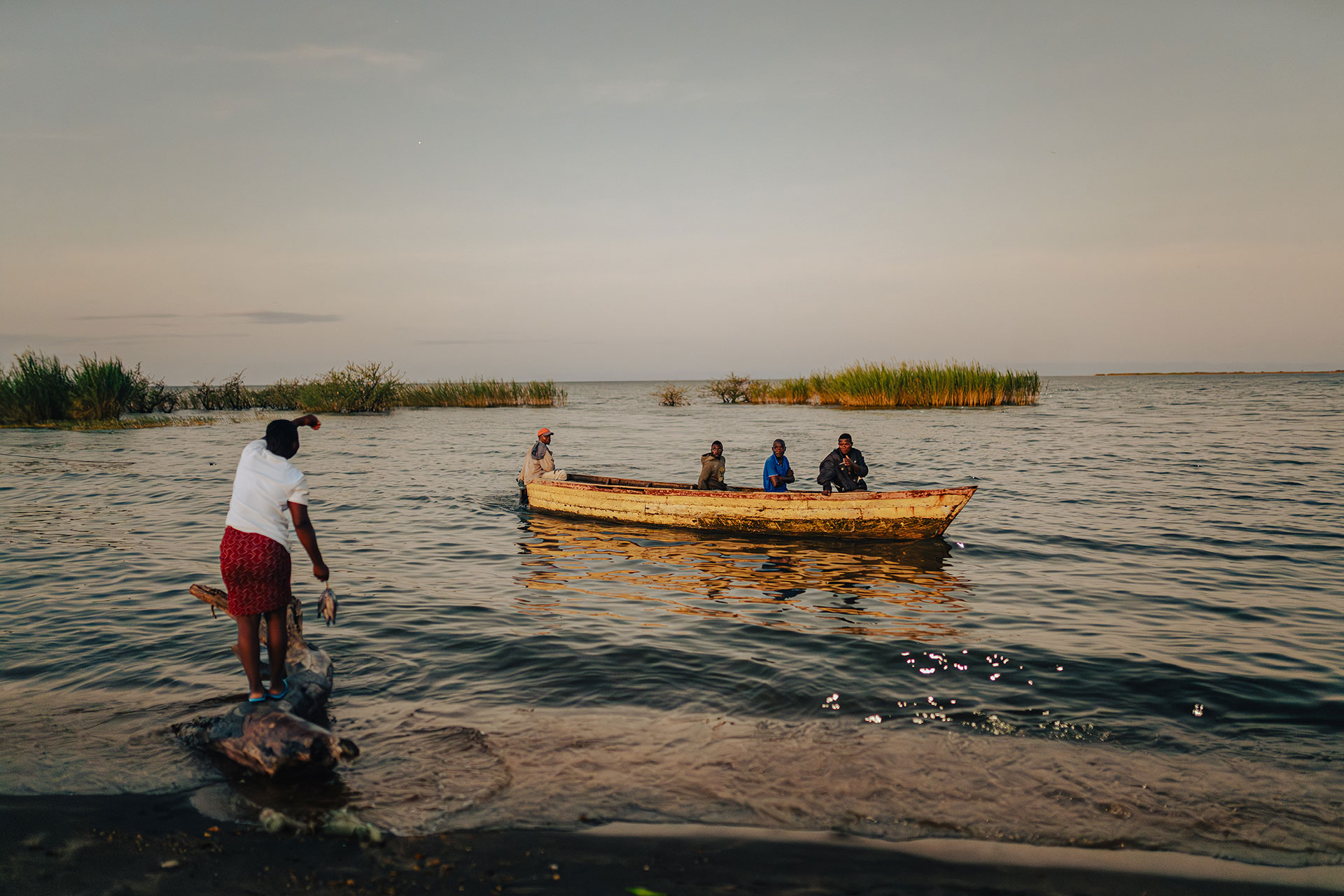
Chinsinsi lives in rural Kalimanjira Village on the shores of Lake Malawi in the country’s central region. Pictured here, a fishing boat returns from an overnight haul.
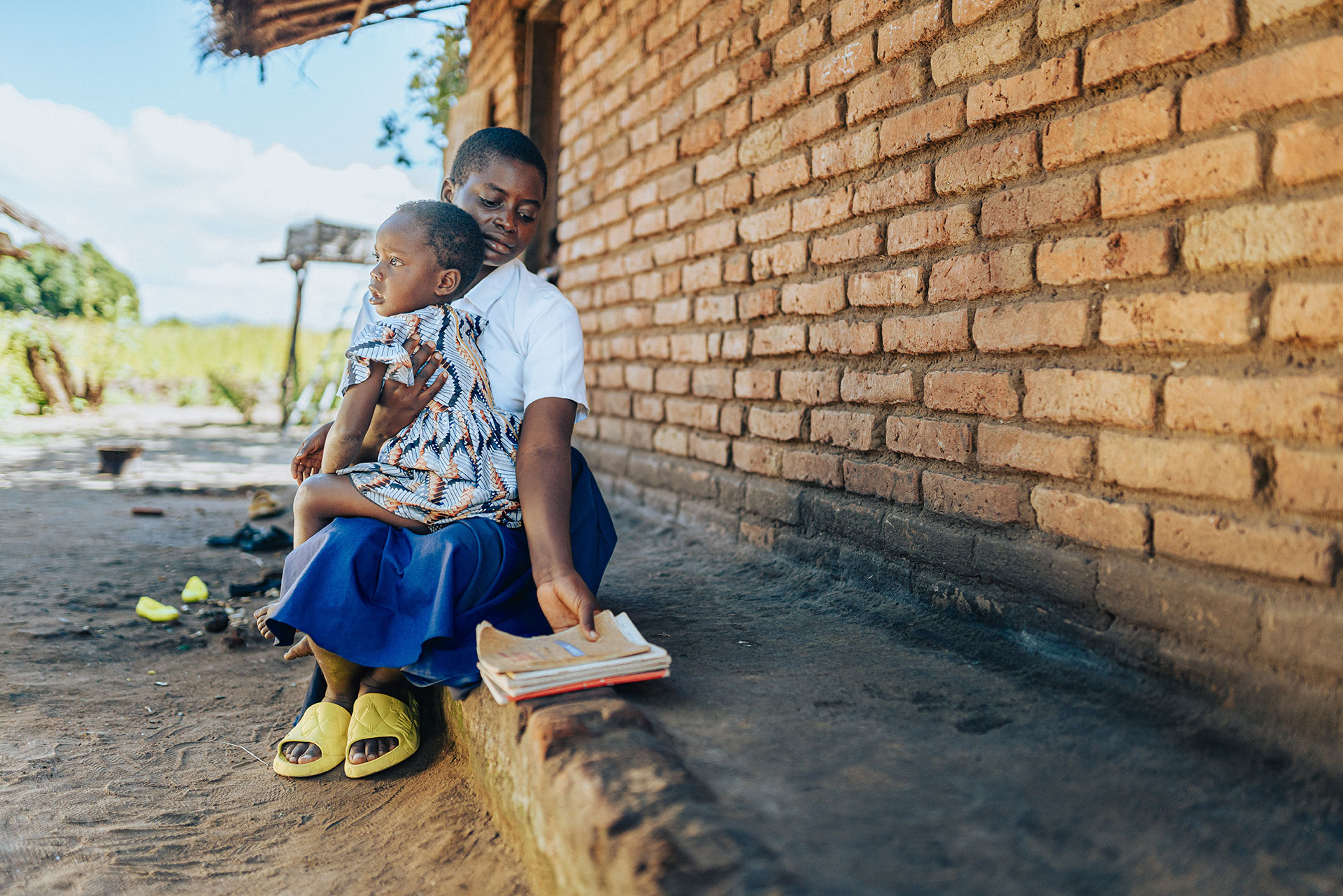
Now age 17, Chinsinsi is raising her two-year-old daughter and attending school again. She credits her parents for helping her avoid the trap of early marriage.
“The reason I did not consider marriage was because of my parents,” she explains. “They advised me on the benefits of getting an education and asked me to wait for my exam results. They supported me throughout the pregnancy and even after, by helping me take care of my child.”

She also received support from Mervis Katandula (shown here with Chinsinsi), a peer educator and social worker associated with the youth-led nonprofit Entrepreneurs Community Solutions and Innovative Development, one of Ipas’s partners in Malawi, and community-based groups in Chinsinsi’s home district of Nkhotakota.
Katandula is known for providing long-term accompaniment for adolescent girls at risk of school dropout due to early pregnancy and stigma. Because of such support, Chinsinsi has not allowed the stigma of being a teenage mother to derail her education.
“We are aware of the low self-esteem that plagues our girls’ minds. Psycho-social support counselling is very important for them,” Katandula says. “I encouraged her to focus on her goals and ignore any gossip or ridicule and not let them crush her dreams and bright future. They need encouragement to dream bigger and think of their career.”
“Some people look down on me because I have a child. They talk to discourage me, but I’m unshaken by the noise. I didn’t lose my intelligence to motherhood.”
With her parents helping care for her daughter, Chinsinsi feels confident focusing on her studies and future again.
My parents’ support motivates me to stay in school,” she says. “I want to be an agricultural advisor or policewoman when I grow up. My ambitions and dreams are far greater than just securing a job; I want to be knowledgeable.”

“To pregnant girls out there who’ve not returned to school, please don’t let fear and doubt consume you. Stay focused to resume your studies after giving birth.”
We have a job to do. Will you join us?
Young people and their local communities already know what’s needed to fight the injustices of child marriage, teenage pregnancy and school dropout. With our holistic approach and vast network of local partners and experts, Ipas is uniquely positioned to help make lasting, systemic change.
With your support, we’ll build a world where every girl can control her own body and future.


